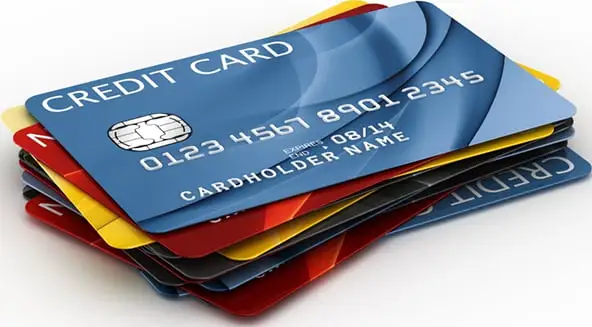If you’ve been scammed and made a payment using your credit card, you have several options to pursue a refund:
- Contact the merchant: First, attempt to resolve the issue directly with the merchant. Sometimes, the problem can be resolved amicably without involving your credit card company.
- Dispute the rate with your credit card issuer. If the merchant is unresponsive or unwilling to issue a refund, you can file a dispute with your credit card issuer. Most credit card companies have a specific process for disputing charges. You can usually do this online or by calling the customer service number on the back of your credit card. Provide details of the transaction, explain why you believe it was fraudulent, and submit any supporting evidence you have.
- File a fraud report. If you suspect that your credit card information has been compromised, report the fraud to your credit card issuer immediately. They can freeze your account, issue you a new card, and investigate the fraudulent activity.
- Know your rights. Familiarize yourself with the Fair Credit Billing Act (FCBA), which provides protections for consumers who use credit cards. Under the FCBA, you have the right to dispute billing errors, including unauthorized charges or charges for goods or services you didn’t receive.
What is a credit card?
A credit card is a payment card issued by a financial institution, typically a bank, that allows cardholders to borrow funds to make purchases or pay for services. Unlike a debit card, which deducts funds directly from the cardholder’s. A checking or savings account, a credit card provides a line of credit that can be used for transactions up to a predetermined limit.
Here are some key features of credit cards:
- Credit Limit: Each credit card has a maximum amount that the cardholder can spend, known as the credit limit. This limit is determined by the issuing bank based on factors such as the cardholder’s credit history, income, and other financial obligations.
- Interest Rates: When cardholders use their credit card to make purchases, they are essentially borrowing money from the issuing bank. If the balance is not paid in full by the due date, the cardholder will incur interest charges on the remaining balance. The interest rate, also known as the Annual Percentage Rate (APR), varies depending on the card issuer and the cardholder’s creditworthiness.
- Fees: Credit cards may come with various fees, including annual fees, late payment fees, cash advance fees, and foreign transaction fees. Cardholders need to review the terms and conditions of their credit card agreement to understand any applicable fees.
- Rewards and Benefits: Many credit cards offer rewards programs. Such as cashback, points, or miles, for purchases made with the card. Cardholders may also receive benefits such as travel insurance, purchase protection, and extended warranties.
How Do You Get a Credit Card Refund If You Have Been Scammed?

If you’ve been scammed and made a payment using your credit card. Here’s a step-by-step guide on how to potentially get a refund:
- Act Quickly: As soon as you realize you’ve been scammed, contact your credit card issuer immediately. Most credit card companies have a specific window of time during which you can dispute charges. Typically ranging from 60 to 120 days from the date of the transaction.
- Initiate a Dispute: File a formal dispute with your credit card issuer. You can usually do this by calling the customer service number on the back of your credit card or by logging into your online account. Explain the situation, provide details of the fraudulent transaction, and submit any evidence you have. The credit card issuer will investigate the matter and may issue a temporary credit. While they conduct their investigation.
- Follow-up: Stay in communication with your credit card issuer throughout the dispute process. They may request additional information or documentation to support your claim. Be prompt in providing any requested information to expedite the resolution.
- Review the Outcome: Once the investigation is complete, your credit card issuer will inform you of their decision. If they find it in your favor, the charge will be permanently removed from your account, and you will receive a refund. If the dispute is not resolved in your favor, you may have the option to appeal the decision or explore other avenues for recourse, such as filing a complaint with consumer protection agencies or seeking legal advice.
- Remember to stay vigilant and monitor your credit card statements regularly for any unauthorized or fraudulent charges. Prompt action is crucial in resolving disputes and securing a refund if you’ve been scammed.
The Final Verdict
In summary, if you’ve been scammed and made a payment using your credit card. You have several options to pursue a refund:
- Act quickly, and contact your credit card issuer immediately.
- Gather evidence of the scam. Such as receipts. Emails, or screenshots.
- Attempt to resolve the issue directly with the merchant.
- File a formal dispute with your credit card issuer, providing details of the fraudulent transaction and any supporting evidence.
- Stay in communication with your credit card issuer throughout the dispute process and provide any requested information promptly.
- Review the outcome of the investigation by your credit card issuer.
- If necessary, explore other avenues for recourse. Such as filing a complaint with consumer protection agencies or seeking legal advice.
By following these steps and staying proactive. You can increase your chances of successfully obtaining a refund if you’ve been scammed using your credit card.
Internal link: emitsnews





